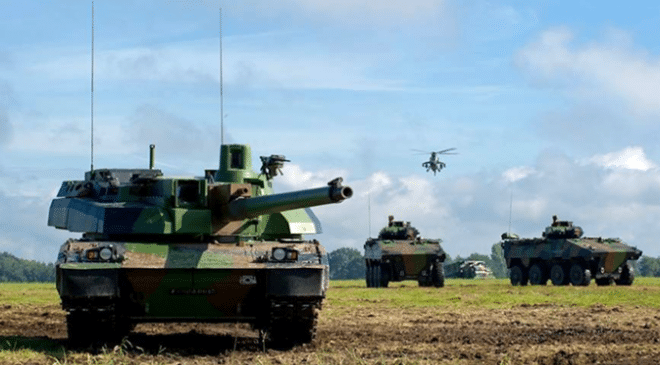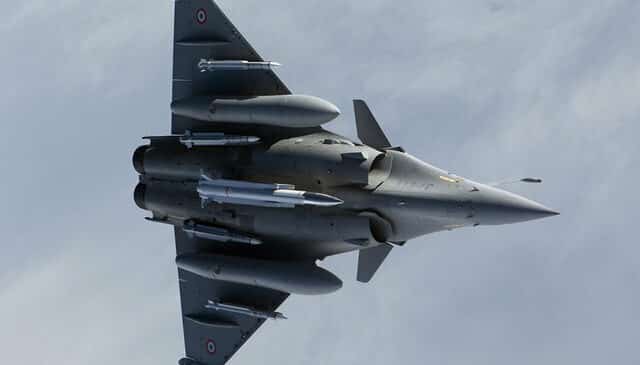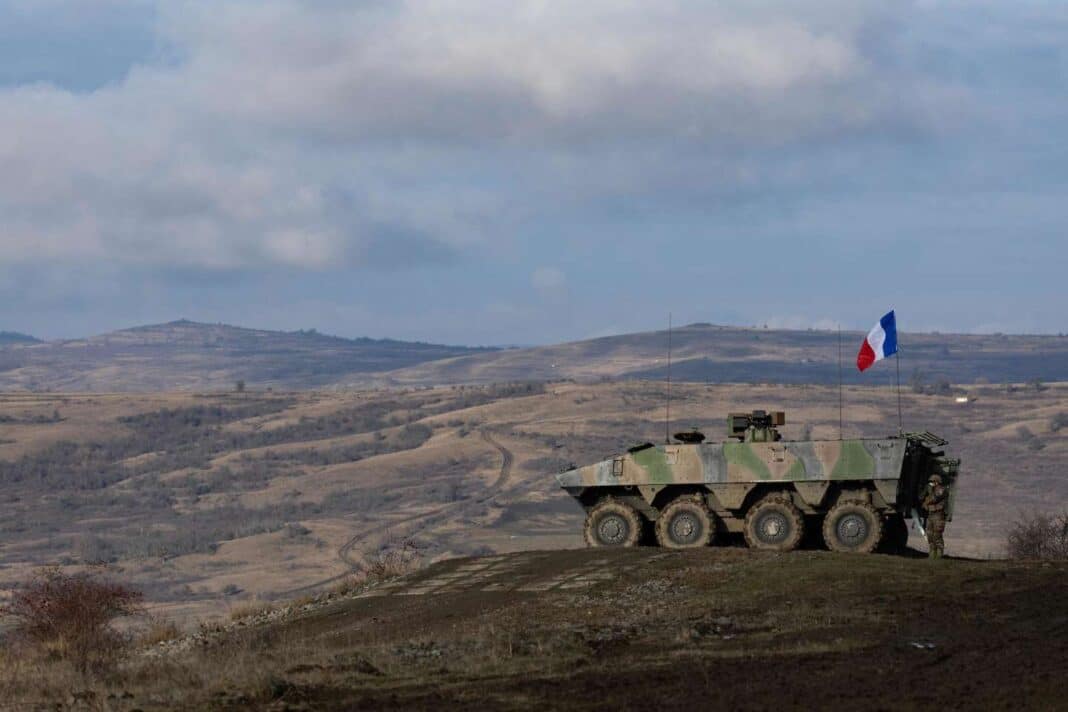While parliamentary debates will begin in the National Assembly around the draft Military Programming Law for the period 2024-2030, the country's defense ambitions are now known and detailed.
Therefore, the announced objective of this LPM to come will be to achieve and maintain the country's defense effort at a level more equal than greater than 2% of gross domestic product, to bring it to €68 billion in 2030, compared to €43 billion in 2023.
In many aspects, this new LPM will make it possible to extend the reconstruction of the armies started in 2017, after twenty years of under-investment having seriously damaged the French military tool, as everywhere else in Europe.
In fact, if in 2019, the President of the European Council publicly qualified the French armies as "the best armies in Europe", it was above all a question of a victory for lack of combatants, when most European countries then had an effort to defense below 1,5% of their GDP.

But given the budgetary trajectory defined by the next French LPM, but also those followed by the other countries surrounding the country, whether allies or potential adversaries, we can reasonably fear that in 2030, France will have heavily began its influence and role on the international scene.
The limits of a French defense effort at 2% of GDP
However, a defense effort at 2% GDP is in line with Paris' commitments within the Atlantic Alliance, as defined during the Cardiff agreements in 2014. As such, the majority of European countries, or more particularly European countries, Western Europe, sharing the socio-economic context of France, is not, today, aiming for a defense effort beyond this limit.
In addition, France has and is developing a powerful deterrent force, contributing very significantly to European security, and justifying the country's status in major world institutions, notably the United Nations Security Council as a permanent member, with has a right of veto, in the same way as the United States, China, Russia and Great Britain.
However, this perception of the situation, as it has often been highlighted in the media, only corresponds to part of the reality that is emerging today.

One of the weakest conventional defense efforts in Europe
Indeed, France will, in 2030, very probably be one of the countries contributing the least to the collective defense effort within NATO, but also in the European Union, which, naturally, contrasts with the ambitions displayed by Paris in these two areas.
Because if the French defense effort will indeed be 2%, like the majority of its European neighbors, between 0,4% and 0,5% of GDP of this budget will be dedicated to the French deterrence effort which, although it actually contributes indirectly to the security of the old continent, it is in no way a tool dedicated to collective defense within NATO or even the European Union.
In addition, with its many overseas territories and an Exclusive Economic Zone of 10 million km² to protect, part of the defense budget will have to be earmarked for the protection of these territories, and will therefore be lacking in European collective defence.
In other words, the reality of the French defense effort, from the point of view of NATO and especially of its members, with an overall defense effort at 2% of GDP, would be between 1,35 and 1,5% of GDP, which is one of the lowest in the Alliance today with Belgium.

75% of this article remains to read,
Subscribe to access it!
The Classic subscriptions provide access to
articles in their full version, and without advertising,
from 6,90 €.
Newsletter subscription
Register for the Meta-Defense Newsletter to receive the
latest fashion articles daily or weekly


[…] Original article published on: Source […]
[…] […]
[…] that beyond the budgetary questions to achieve such a format of the armies, which would require between 2,6 and 2,7% of GDP dedicated to the defense effort each year, it would also be necessary to increase the number of personnel armies of 15 to 20%, […]
[…] that beyond the budgetary questions to achieve such a format of the armies, which would require between 2,6 and 2,7% of GDP dedicated to the defense effort each year, it would also be necessary to increase the number of personnel armies of 15 […]
[…] The defense effort targeted by the new Military Programming Law at 2% of French GDP appears insufficient to preserve the country's role on the international scene. […]
A third armored division? And why do it then? To possibly come to the aid of Poles who order Korean, American or Israeli military equipment and entrust the construction of their highways to Chinese companies?
As for the so-called Russian threat, it is hard to believe it when we see that it has proven incapable of conquering a small country like Ukraine.
If the threat comes from the east and we must invest massively in a battle force, what good does it do us to have paid for and maintained for decades an independent nuclear deterrent force, a force which the United States does not have? Germany or Poland?
France is above all a maritime power (like England and the United States) unlike Germany or Russia which are continental powers.
We protected ourselves from disappointment as in 1871, 1914 and 1940 by equipping ourselves with a deterrent force intended to ensure our territorial integrity.
The priority should not be to strengthen our land army with a 3rd armored division but rather our National Navy by equipping it with additional submarines and frigates (as well as the infrastructure that goes with it) in Guyana, the Caribbean, in the Indian Ocean and the Pacific, so that it can properly monitor our EEZ and secure our trade routes.
Nothing says that what the English experienced in the Falklands will not happen to us. Unlike us, Germany, Poland, Italy, Hungary or Romania do not have to ensure the security of territories spread across all the seas of the world.
Our army does not need 3 heavy armored divisions (the Challengers were quite useless in the Falklands) adapted to Eastern Europe but to have all the necessary capabilities to project an expeditionary force in New Caledonia , in Reunion, in Guyana, in the Caribbean or in the Pacific.
If necessary, let us help the Indians, the Greeks, the Emiratis, the Qataris, the Indonesians, the Egyptians who trust our defense industry. And so let the Poles and Germans manage with their usual suppliers.